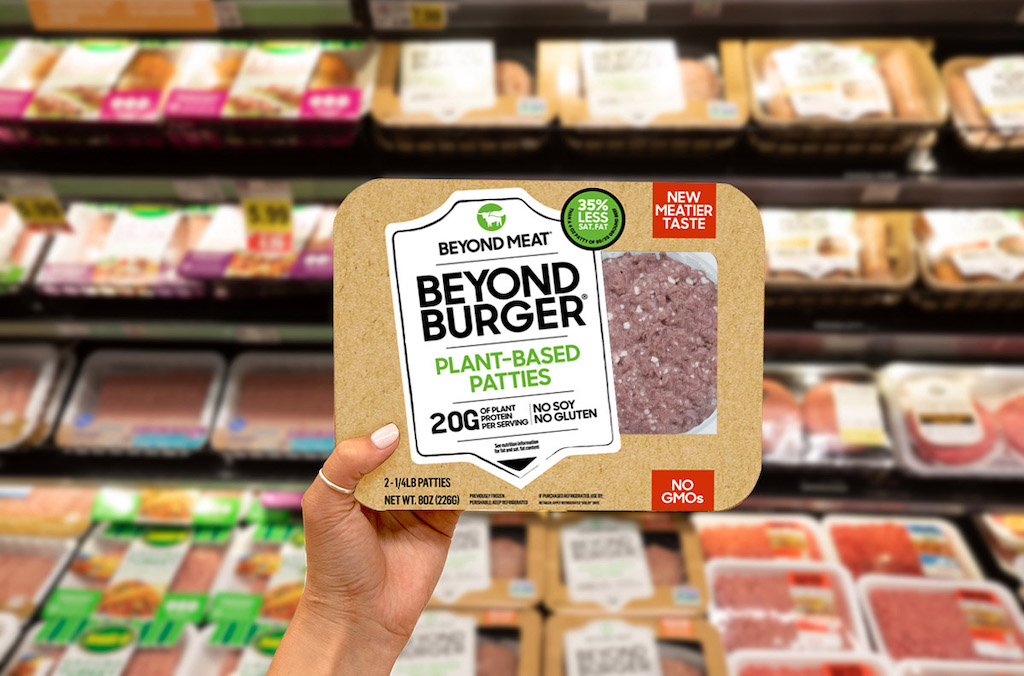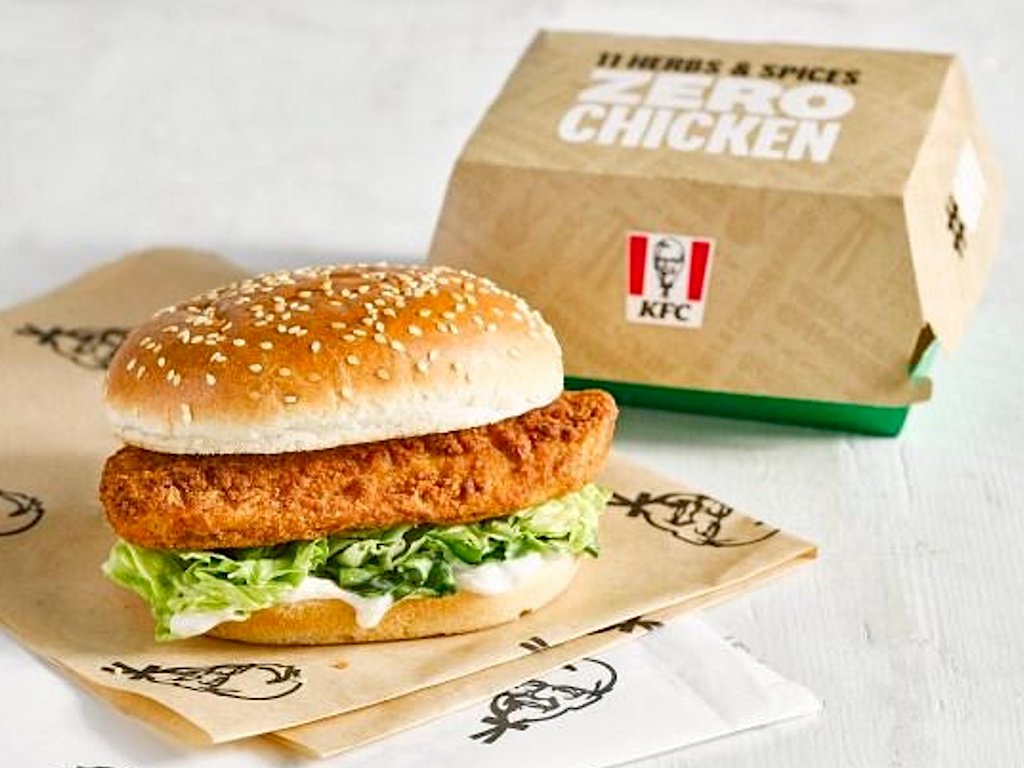5 Mins Read
The much awaited U.S. plant-based food retail sales data from 2021 has just been released in the latest report by market analysis company SPINS: the industry saw a year-on-year growth of 6.2 percent in 2021, representing a market value of $7.4 billion, a new record for the sector.
The Plant Based Foods Association (PBFA), the US-based trade association committed to advancing vegan food products, has published its own overview of the the results, showcasing overall industry growth over the past year and highlighting key sub-sectors including soaring plant milk sales and disappointing plant-based meat revenues.

The good news first
On the whole, the outlook for the sector is positive. While 2021 did not show as much growth as 2020, Looking at plant-based growth overall, figures are positive. 2020 was a record-breaking year for market increase, recording 28 percent growth. In comparison, 2021 rising by six percent looks marginal, but it contributes to a three-year increase of 54 percent. The result is plant-based foods outpacing total food sales and a larger dollar share. PBFA’s analysis states that while consumers are shopping less frequently, they are returning to plant-based goods. It suggests that this demonstrates a shift with meat-free goods becoming “must-have” items, not just “nice to have” novelties.
“The sustained rise in the market share of plant-based foods is remarkable, and makes it clear that this shift is here to stay,” Julie Emmett, PBFA’s senior director of marketplace development said in a statement. “More and more consumers are turning to plant-based options that align with their values and desire to have a positive impact on personal and planetary health.”
Big winners: eggs & dairy creamer
Plant-based eggs sales proved very strong in 2021, showing a 42 percent increase from the year before. Overall, they saw a more than 1,000 percent increase in dollar sales over the last three years, in part thanks to numerous brand launches. Dairy-free creamers came in second with a 33 percent growth rate and ready-to-drink beverages rose 22 percent.
The highest value sub-category was plant milk, racking up $2.6 billion in sales and a four percent increase on 2020’s sales figures. Across three years, it has grown 33 percent. In terms of category share, plant milk now accounts for 16 percent of all retail milk dollar sales, with almond varieties leading the sub-sector. Claiming 59 percent of all plant milk sales, almond still eclipses the fastest growing alternative, oat, which now accounts for 17 percent of category sales. In terms of growth, this is significant as it claimed just 0.5 percent in 2018.

The problem with plant-based meat
Despite increased product availability in terms of brand choices and outlets, plant-based meat sales stalled in 2021. Recording zero growth, they remained stable at $1.4 billion in retail sales. Three-year growth stands at 74 percent, but the stagnation in 2021 has led industry observers to suggest the plant-based meat bubble has burst. Claiming 1.4% of the total meat category, there is scope for improvement. Household penetration stood at 19 percent, up one percent on 2020, with 64 percent of buyers proving to be repeat customers.
Meat-free burgers were shown to be the continued bestsellers, with chicken alternatives, meatballs and deli meats closing in in 2021. Plant-based chicken proved to be a major driver, with innovations in texture pushing product popularity. Seafood alternatives showed decent growth at 14 percent with revenues of $14 million, though they remain a tiny part of overall plant-based animal protein sales at just one percent of sub-sector.
Tofu and tempeh, both popular whole-foods alternatives to plant-based meats, took a nine percent hit, bringing in $126 million.
Ethan Brown, CEO of Beyond Meat recently commented on the company’s lagging sales. The Segundo-California company is the only plant-based meat company to have gone public, and its performance tends to be seen as a bell-weather of the larger industry. While he openly discussed Beyond’s disappointing 2021 performance in a recent interview, he remained optimistic about new growth.
Despite sales stagnation, strategic partnerships between plant-based meat producers and fast-food chains were prevalent in 2021. Mcdonald’s, Burger King, Pizza Hut and KFC and more confirmed the use of products including Beyond Meat and Lightlife.

How the industry can move forward
PBFA’s report suggests that price remains a prohibitive issue when it comes to the uptake of plant-based products. While big meat and dairy have had decades to optimise their supply chains and distribution, animal-free meat manufacturers are still finding their feet and building out facilities large enough to cope with demand. Once more factories are built-out, plant-based meat companies will be in a stronger position to compete with more budget-friendly animal meat prices. PBFA also called out the rise of conscious consumerism, retail partnerships and increased distribution channels as key factors for sustained industry growth.
In a statement, PBFA said: “PBFA recognizes that healthy and sustainable plant-based foods are not always readily available to consumers everywhere, which is why increasing accessibility of these foods to people of all backgrounds and geographies must be a top priority for the industry in the months and years ahead. Retailers and foodservice operators are seeking insights to inform the expansion of their plant-based food offerings and leverage the dollar opportunity that plant-based foods provide. We see this as an incredible opportunity to build collaborative partnerships between plant-based food companies, retailers, and foodservice operators to address potential gaps and identify opportunities to increase the visibility and availability of plant-based options everywhere, from grocery shelves to school lunches and beyond.”

Helping the cause
NYC’s plant-based Mayor, Eric Adams, announced in February that all public schools will serve vegan-only food once a week. Vegan Fridays is an initiative to give all children, regardless of household income, access to healthy meals. The change is permanent and will affect nearly 930,000 children. Plant-based himself, Adams is keen to spread the message of good health coming from animal-free foods.
Lead photo by Gustavo Fring at Pexels.




